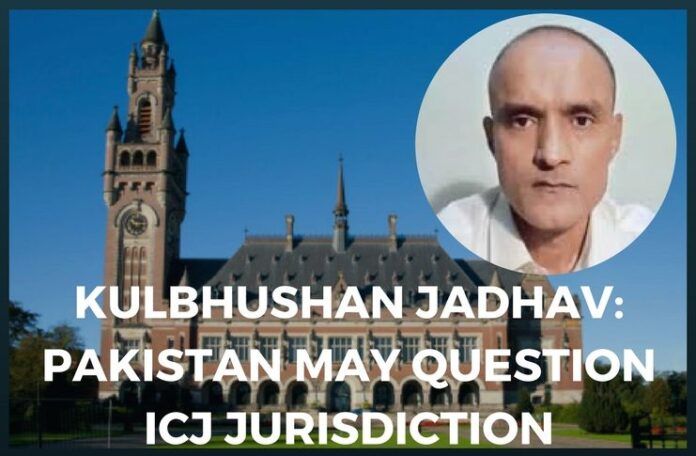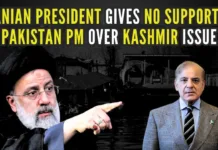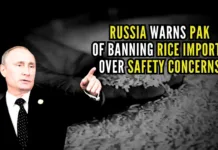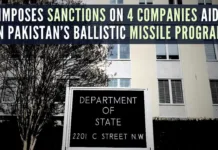
ICJ has granted a stay on Pakistan’s decision to hang Kulbhushan Jadhav
[dropcap color=”#008040″ boxed=”yes” boxed_radius=”8px” class=”” id=””]A[/dropcap]lthough Indian national Kulbhushan Sudhir Jadhav, tried and sentenced to death by a Pakistan military court on April 10, 2017, for allegedly being an Indian spy in Balochistan, has won a temporary reprieve with the intervention of the International Court of Justice, the road ahead is treacherous. Islamabad has already hinted at questioning the ICJ’s jurisdiction in the matter.
Monday’s hearing, according to the ICJ release, will be “devoted to the request for the indication of provisional measures submitted by India”.
For now, there is no official stay by the ICJ – the first public hearing in the matter will be on Monday, May 15 – but Pakistan has put further action on hold as defying the request of the ICJ President would inflame international opinion at a time when the country is being held responsible for terrorist activities in at least three neighbouring countries.
The Government of India apprehended a sudden execution in view of Pakistan’s refusal to grant consular access to Jadhav even after 16 requests over the past one year, and even after announcing his death sentence on April 10. As neither charge sheet nor court-martial proceedings have been made available to India, it is also not clear when the trial was conducted and death penalty awarded to the defendant.
If we take April 10 as the impugned date, then one month has expired with no forward movement. Hence, there was a very real danger that Islamabad would one day declare the judicial process over and proceed to execute the prisoner. India has already warned that if Jadhav is hanged, it would be considered “premeditated murder”.
[dropcap color=”#008040″ boxed=”yes” boxed_radius=”8px” class=”” id=””]I[/dropcap]n these circumstances, the Indian ambassador to The Netherlands, Mr P.S. Mukul, rushed to the International Court of Justice at The Hague on May 8 and impressed the urgency of India’s case upon the Registry. Senior advocate and international jurist, Harish Salve, then argued the legal aspects of the case for 20 minutes. Convinced of the urgency, the Registry took the matter to the President of the ICJ, Judge Ronny Abraham of France, who urged Pakistan Prime Minister Nawaz Sharif not to take any precipitate action in the matter.
Kulbhushan Jadhav should have been informed of his right to seek access to Indian consular officers, and Indian consular officers should have been allowed to visit and communicate with him.
Judge Abraham wrote, “In my capacity as president of the court, and exercising powers conferred upon me under Article 74, paragraph 4, of the rules of the court, I call upon Your Excellency’s Government, pending the court’s decision on [India’s] request for the indication of provisional measures, to act in such a way as will enable any order the court may make on this request to have its appropriate effects”.
Satisfied with this development, on the evening of May 9, Union Minister for External Affairs Sushma Swaraj informed the nation that the President of the International Court of Justice had granted a stay on Pakistan’s decision to hang Kulbhushan Jadhav, under Article 74 Paragraph 4 of Rules of Court; she also informed Jadhav’s mother of the development.
Monday’s hearing, according to the ICJ release, will be “devoted to the request for the indication of provisional measures submitted by India”. Pakistan Prime Minister Nawaz Sharif held consultations with Army chief Gen Qamar Javed Bajwa following this development and said his government would review the ICJ’s jurisdiction in the matter – an indication of the line Islamabad is likely to take before the international court.
In a sound tactical move, India moved the ICJ on grounds of violation of the Vienna Convention on Consular Relations (VCCR), to which both countries are signatories. India argued that Article 36 of the Vienna Convention allows for consular access to foreign nationals; that under this statute, Kulbhushan Jadhav should have been informed of his right to seek access to Indian consular officers, and Indian consular officers should have been allowed to visit and communicate with him. The 15-judge ICJ will now adjudicate on whether Jadhav’s rights were violated under this protocol.
India and Pakistan are also signatories to the Optional Protocol that provides that any dispute arising out of the interpretation or application of VCCR shall lie within the compulsory jurisdiction of the ICJ. Nevertheless, legal experts expect Islamabad to challenge the ICJ jurisdiction.
[dropcap color=”#008040″ boxed=”yes” boxed_radius=”8px” class=”” id=””]I[/dropcap]n 1960, Pakistan recognised the ICJ’s jurisdiction except in certain matters, namely, “Disputes to questions which by international law fall exclusively within the domestic jurisdiction of Pakistan”. Islamabad claims that as Kulbhushan Jadhav is charged with espionage, its laws do not permit consular access.
Should Pakistan be unable to annul the decision, the ICJ should declare the decision illegal being violation of international law and treaty rights
India, in its submission at The Hague, has accused Pakistan of “egregious violations of the Vienna Convention on Consular Relations” in the detention and trial of its citizen Kulbhushan Jadhav. New Delhi contends that it was not informed of Jadhav’s detention until long after his arrest; that Pakistan failed to inform the accused of his rights; and that, in violation of the Vienna Convention, Islamabad continues to deny India its right of consular access to its citizen, despite 16 requests. Indeed, India learnt of Jadhav’s death sentence from a press release.
According to information with Indian authorities, Jadhav was kidnapped from Iran, where he was engaged in business after retiring from the Indian Navy. He was then shown to have been arrested in Baluchistan on 3 March 2016. New Delhi was notified of the arrest only on 25 March 2016, and thereafter consistently denied consular access.
India states that on 23 January 2017, Pakistan requested assistance in the investigation of Jadhav’s alleged “involvement in espionage and terrorist activities in Pakistan” and informed India by a Note Verbale of 21 March 2017 that “consular access to Mr Jadhav would be considered in the light of the Indian side’s response to Pakistan’s request for assistance in [the] investigation process”. India countered that “linking assistance to the investigation process to [the granting of] consular access was by itself a serious violation of the Vienna Convention”.
India now hopes for relief by way of immediate suspension of Jadhav’s death sentence and declaration of the sentence of the military court as in brazen defiance of Vienna Convention rights under Article 36 paragraph 1 (b) and in defiance of elementary human rights of an accused as mandated under Article 14 of the 1966 International Covenant on Civil and Political Rights. It also urges the ICJ to restrain Pakistan from giving effect to the sentence awarded by the military court and direct it to take steps to annul the decision of the military court as may be available to it under the law in Pakistan.
Should Pakistan be unable to annul the decision, the ICJ should declare the decision illegal being violation of international law and treaty rights, and restrain Pakistan from acting in violation of the Vienna Convention and international law by giving effect to the sentence or the conviction in any manner, and direct it to release the convicted Indian national immediately.
In this regard, India has invoked Article 36, paragraph 1, of the Statute of the Court, by virtue of the operation of Article I of the Optional Protocol to the Vienna Convention on Consular Relations concerning the Compulsory Settlement of Disputes of 24 April 1963.
The ICJ’s decision is “binding” and rarely is a decision not implemented as all member states of the United Nations undertake to comply with the Court’s rulings in matters the states are party to. The ICJ’s judgement is announced at a public sitting. Neither India nor Pakistan can appeal the final verdict since ICJ judgements are only open to revisions or interpretations. But the Court does not have any direct powers to ensure implementation of its judgements. Countries that believe that the other party has failed to abide by an ICJ ruling can approach the UN Security Council, which can take measures to compel the offending party to enforce the judgement. Alternately, a veto by a friendly nation can ‘save’ the offending party.
It may be recalled that soon after Jadhav’s death sentence was announced on April 10, 2017, Supreme Court senior advocate Prof Bhim Singh initiated the battle for his release via the India-Pak Joint Defence Committee for Prisoners. Singh held video conferences with Zulfiqar Ali Jehangir, Advocate, Supreme Court of Pakistan, and president of the said Joint Defence Committee for Prisoners, but could not make headway after the Lahore High Court Bar Association passed a resolution threatening to disbar any lawyer who took up the case. This compelled Pakistan’s human rights activists to fall silent.
Note:
1. The views expressed here are those of the author and do not necessarily represent or reflect the views of PGurus.
- Plagiarism with Pride - November 10, 2018
- “Hindu-ness is the essence of India” – RSS Sarsanghachalak - September 20, 2018
- Lacunas persist in Kathua story - May 5, 2018











The author has brought out many points which are missing in the mainstream media narrative on this case. Irrespective of international pressure from ICJ, poor Kulbhushan Jadhav’s fate is sealed, if we are to go by what has happened to such prisoners in Pakistan in the recent past. India must prepare for this eventuality and give a resounding slap on Pakistan’s face. Pakistan understands only the language of strength and force.
Pakistan is a rogue nation. It has no regard for law,justice or humanity. It is unfortunate that Chana is supporting Pakistan. China has a long history of human right violations herself, so what can you expect?